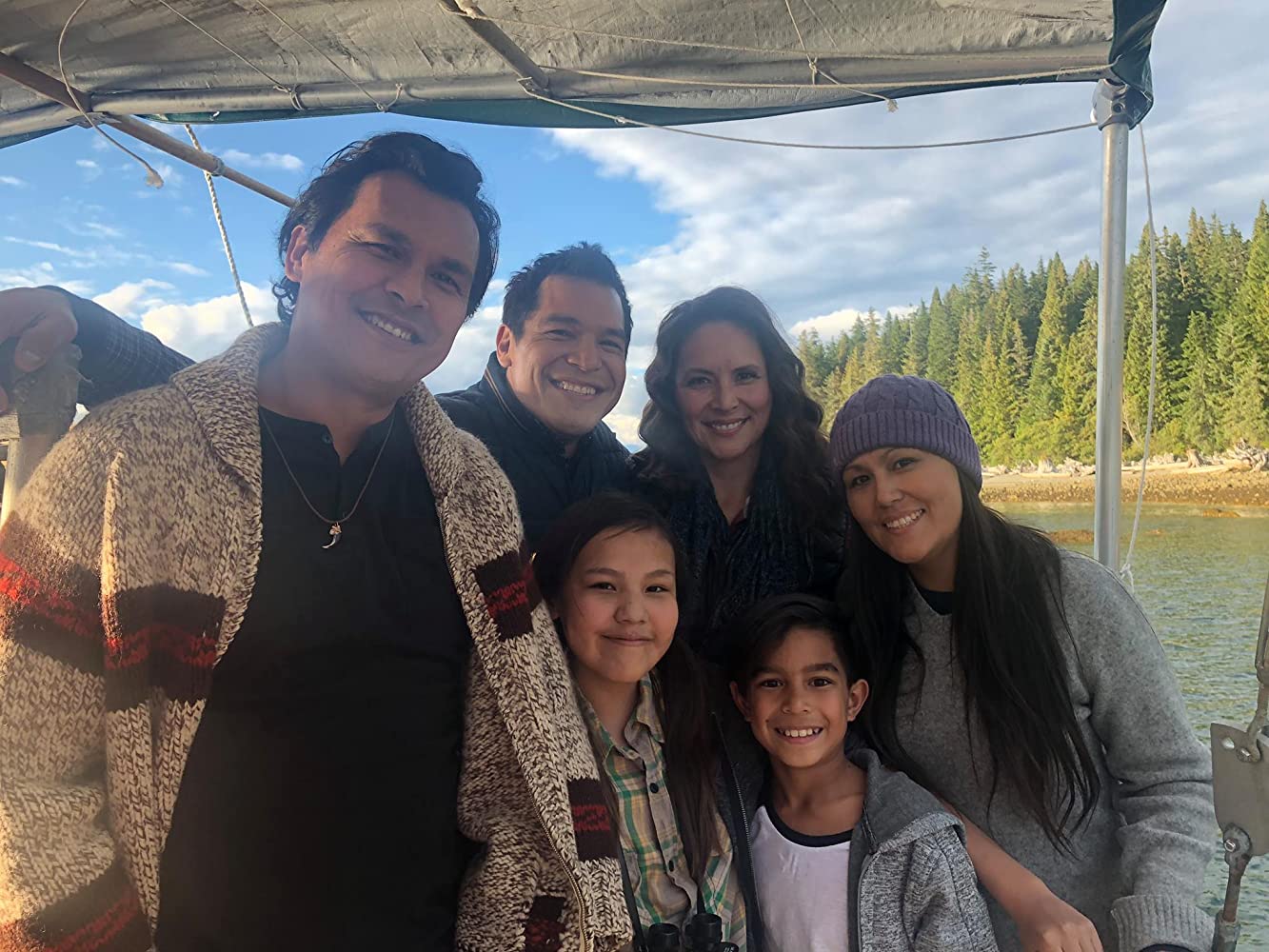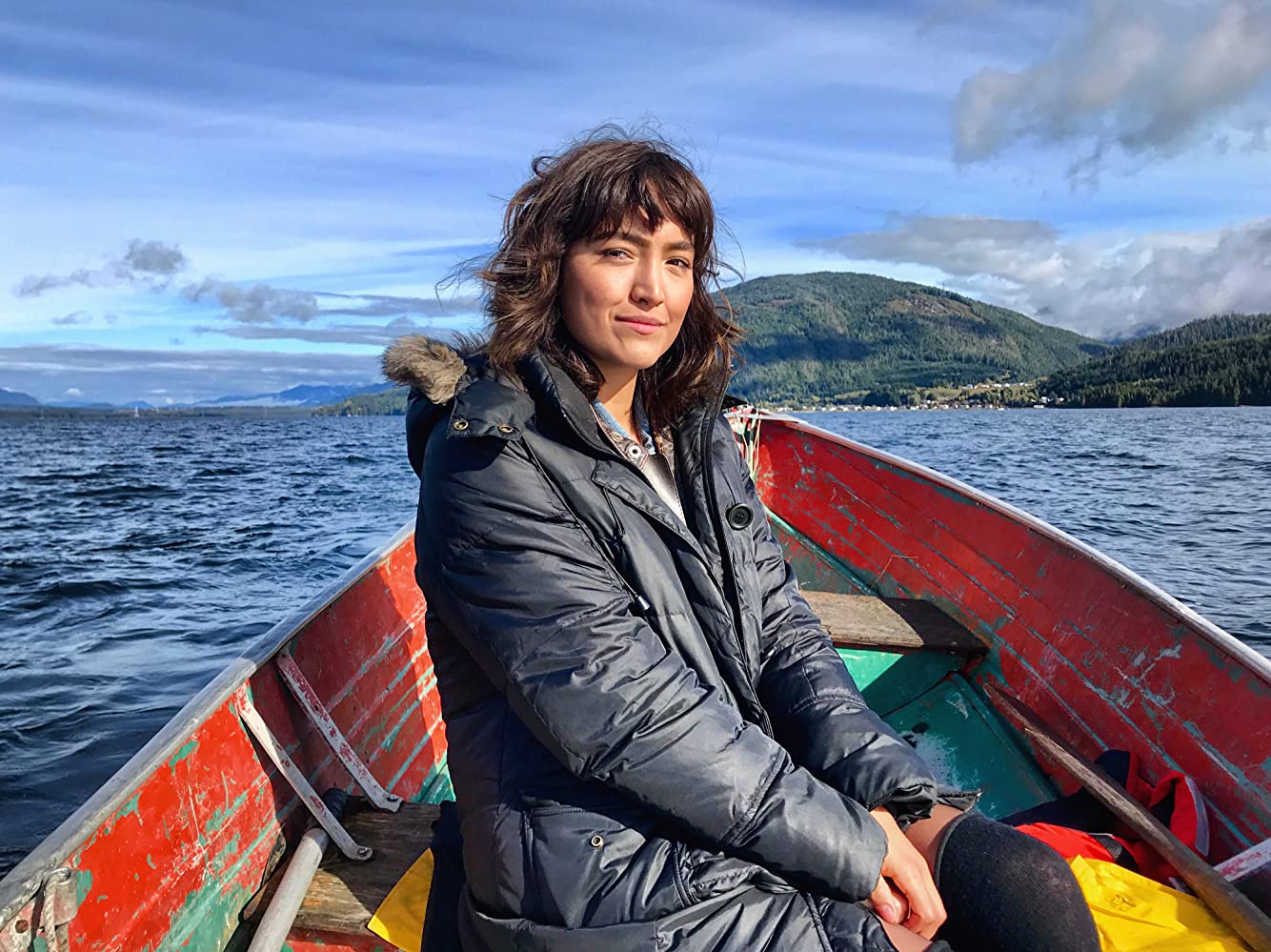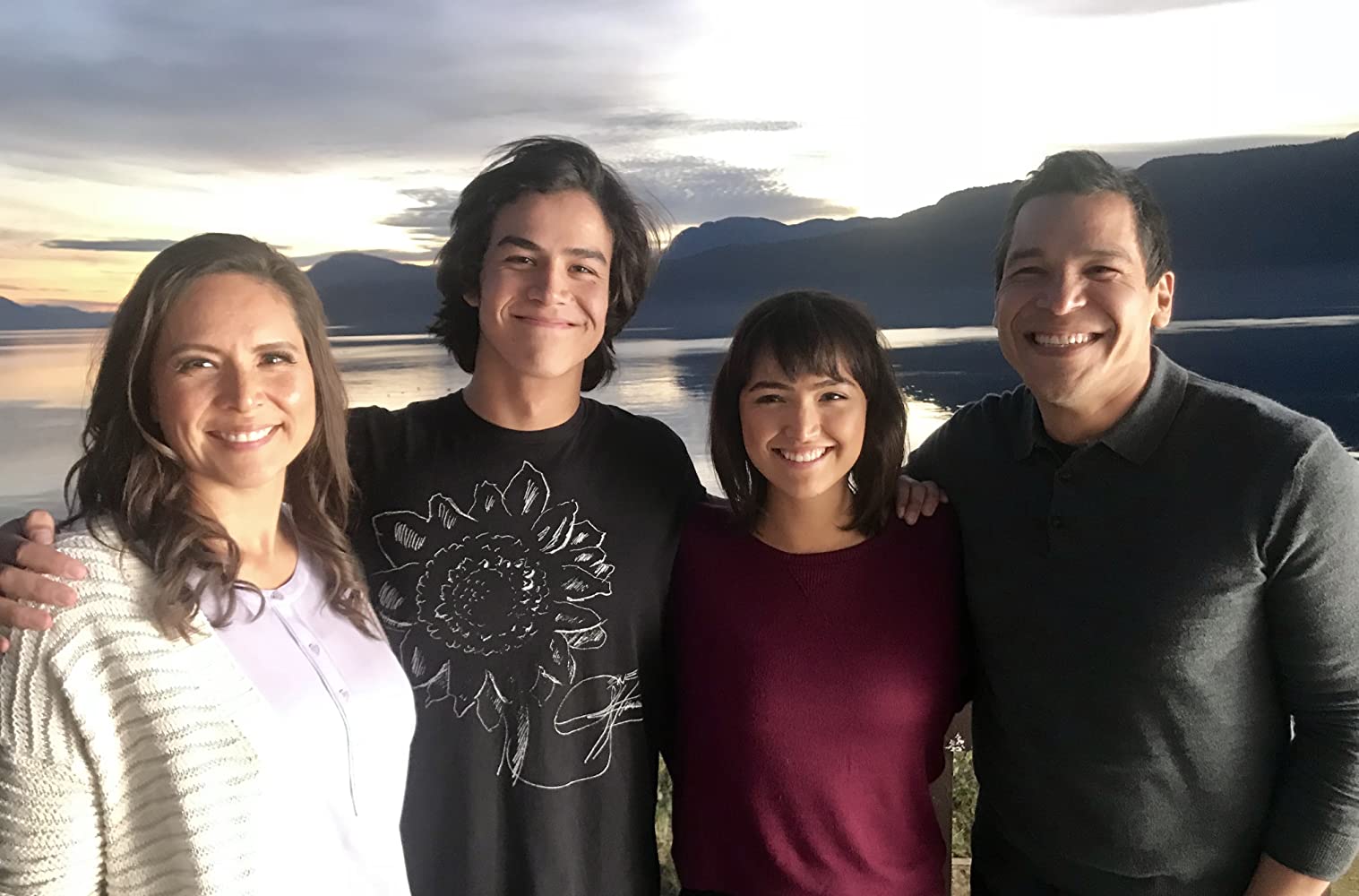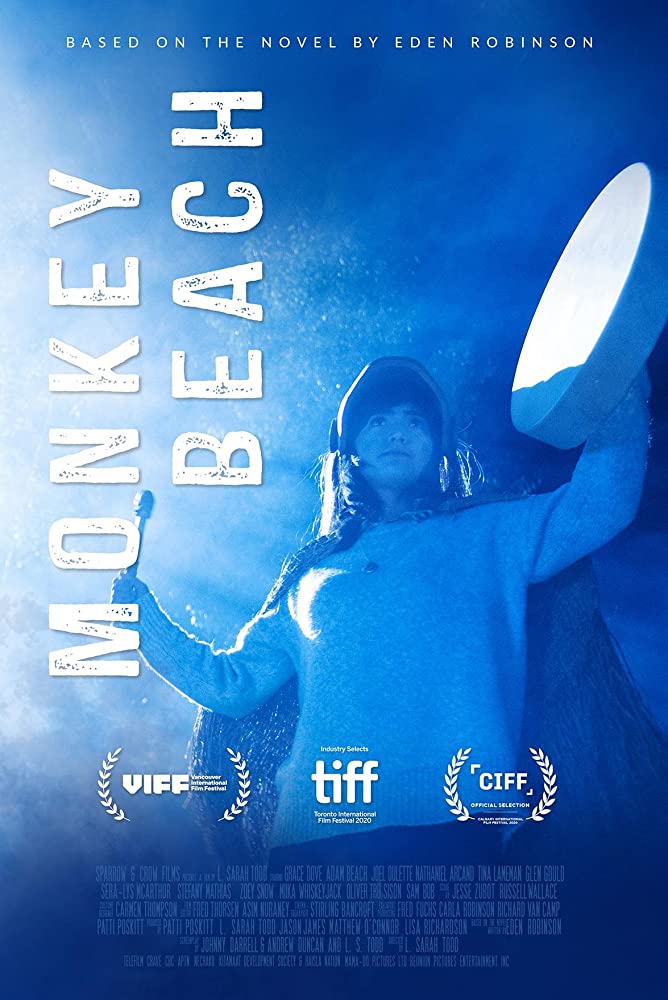Throughout history, every country has made films depicting their heroes, their stories and myths… but one culture that has been greatly unrepresented is the Indigenous Peoples history. Their stories and history in film have remained unknown and undiscovered to most of the public outside of Indigenous communities. Thankfully change is however coming and their voices, their stories and majestic tales can finally be represented by Indigenous filmmakers.
Loretta Todd is an accomplished filmmaker making her feature directorial debut on her first narrative film, Monkey Beach. Her years of experience have prepared her for this project and she’s been directing and producing on her other popular series, Coyote’s Crazy Smart Science Show, the Tansi! Nehiyawetan series and the documentary Forgotten Warriors. Her tenacity and love of culture keep fuelling her ambition to keep telling Indigenous stories that represent her community and the rest of the world is benefitting from them. For too long, these stories have remained untold but change is happening and Indigenous filmmakers have much to say and share.
Monkey Beach was adapted from the novel of the same name and I was very privileged to have the opportunity to speak with Loretta Todd over Zoom. This is how that went;
“Did you adapt the novel into a screenplay or did you find another writer to do that?”
“It was actually a collaborative process and it took much longer than you might think. When I originally started this process, I had asked Eden (Robinson) to write it – but after she had started, she was having to go back and revisit all those people and old experiences. She wanted to put some distance between herself and the original writing and felt that she couldn’t do it anymore… so then I took it on. As a filmmaker however, I wanted to put all the best scenes in there and then some. I ended up with 150 pages and they kept saying, it’s not there yet. I brought on 2 others writers, Johnny Darrel and Andrew Duncan… and they were able to find the structure for the script, as well as a flow that stayed true to the story, the essence of the characters and the elliptical way in which I tell her story/make my films. Together, we were able to bring it to a manageable level that pleased Telefilm and others. I had participated in the writing on some of the ‘contacting the dead’ scenes but Johnny and Andrew carried the bulk of the writing load.”
“Did you manage to write the screenplay without having to leave much out from the novel?”
“Even though its an easy read, there’s so much going on in the book. It was a very painful experience to have to leave a lot of scenes out. There’s an area up north in the Haisla territory called the Kitlope that had to be removed, as well as a lot of her teenage years. At one point I did approach a broadcaster in the early stages of development with the idea of mini-series that would allow more layers of her story to come out. Unfortunately, they weren’t ready for it at that time but I do believe we were able to capture the essence of Lisa and we had decided to focus on the heroes journey, her relationship with the family and coming to terms with her supernatural powers.”
“There are some political statements in the film, were those also in the novel?”
“It’s in the book… as an Indigenous person, it’s part of our daily life and we’re always political, our very existence is political and it’s layered throughout the story.”

“Would you say that your target audience is Indigenous, or do you hope this story can educate/appeal in non-Indigenous cultures as well?”
“Monkey Beach is such an interesting book. It transcends gender, age, generation and culture. It has a broad appeal both internationally and in North America – and is in it’s 20th year of publication with a huge following; it’s even taught in schools. I want young Indigenous women to feel like they can be as strong as Lisa after watching this film, as well as identifying with her strengths and finding meaning in them.”
“In this story, Lisa’s brother seems to die at the end. Is that also how the novel ends?”
“That’s a funny thing because there’s a debate within classroom’s on whether or not Jimmy actually lives. I’ve asked Eden about it and she said she deliberately left the ending ambiguous. I think part of the message in the film is… there is no death and we live beyond the physical world. Jimmy does live on, maybe not in a physical sense but as energy/entity with consciousness. This is the belief in most Indigenous culture. Despite the tragedy with Jimmy, I still want there to be a message of hope and strength.”
“Was your film crew entirely Indigenous?”
“On all my other productions (Coyote’s Crazy Smart Science Show, Nehiyawetan) I’ve used 100 percent Indigenous crew but with this production, it was a little harder because it was union. I was able to get a considerable number of Indigenous crew and would’ve loved for it to be 100 percent but it didn’t happen, however I was happy with the numbers we did have and I was insistent on hiring a lot of people in Kitimat, Terrace and Prince Rupert.”
“Did you film in Kitimat because the story takes place there in the novel?”
“We did shoot a couple days in Vancouver but I was insistent on filming in Kitimat because it is where the story comes from. I probably could’ve made the film in Vancouver on a smaller budget but it was important to me that the film be made in Kitimat.”
“You have a lot of scenes shot in the forest. How difficult was it to film those scenes there?”
“We did bring up our generators and equipment but most of the places we filmed were in the town/village where there were parks with bathrooms, trails and roads. I’d scouted it beforehand and we were quite comfortable. Monkey Beach is another 3-hour boat ride and it would’ve been quite a challenge to bring a crew of 20-30 people along, which also would make it impossible to go home every day. We did look into some fishing camps but they were all booked. We did do some filming on the actual Monkey Beach but we did end up finding a beautiful spot near the village for the majority of our filming.”
“There were some really beautiful camera shots. Were those all your ideas or was it a collaboration with your cinematographer?”
“I storyboarded the entire film and I’ve been known as a very visual expressive and stylistic filmmaker. Cinema is very important to me and I’ve always looked beyond western style of filmmaking to find other ways of looking at cinema. The drone shots were critical to the telling of the story, so we had two drone operators. We also brought an underwater camera case to capture the water scenes because they were also very important. In saying that however, we did have an amazingly talented DP (Stirling Bancroft) that had a love and great appreciation for cinema as well and I couldn’t have achieved the look without his expertise.”
Loretta adds, “In terms of the soundtrack, I was influenced by the musical score in the movie Arrival. I thought it had a beautiful sound. I had also used some local groups in some scenes – The Snotty Nose Rez Kids, Arthur Renrek and Mob Bounce, which was important for me to have them included and they’re all from the Kitimat area.”

“Where can we see the film Monkey Beach?”
“It’s going to launch on September 24th at the Vancouver International Film Festival at a covid-safe theatre (50-person capacity). We also screened at TIFF, virtually – as part of the Industry Selects category. The film can also be seen virtually at VIFF and has already completely sold out but they may be able to add more screenings. It will also be seen at Vancity and The Rio, Cinematheque and The Kay Meek Arts Centre. It will also be screening in Salmon Arm, Kamloops, Victoria and Terrace, as well as a location in the Kootenay’s. It will also be shown at the Calgary International Film Festival. I will be in attendance at VIFF on opening night and possibly on the 6th as well but I still need to confirm.”
“What was the best part in being able to direct/make this film?”
“It’s a dream come true but it’s more than that. As an Indigenous person I’ve been tying to make feature films back in the day, but I believe we were ahead of our time and it never seemed to happen. It’s been a long time coming and things have begun to change but we still need more change. It’s been great to be able to finally give back to Eden Robinson because she’s been so patient and supportive throughout the years in terms of allowing me to option her book. It also felt really good to be able to make this film in the community and it was important for me to be able to represent their community in a positive way. When I’m directing, I feel like a ninja – I’m in the moment and all those years of learning and studying the craft cumulates and comes together, and that ninja spirit takes over… that’s a beautiful feeling.”
“Do you have another project in mind for your next film?”
“I have a lot – including a para script that I wrote years ago and everyone told me it was too expensive and in Covid times it wouldn’t be very realistic, but someday I want to make it. There are also a couple other books I’m interested in optioning. I’m still doing children’s programming and I have a children’s animated series in development. I’m also working on season 3 of Coyote’s Crazy Smart Science, so I’ve got a lot that I’m still currently working on.”
Monkey Beach will also be available on Crave in November and in the new year on APTN and CBC. It’s an incredibly well told story that opens a window into the spiritual world as well as spiritual gifts that some have been lucky enough to receive.
Loretta Todd is a filmmaking talent that continues to push forward and provide agency for other Indigenous filmmakers while fostering more stories from her cultures past and present beliefs.


